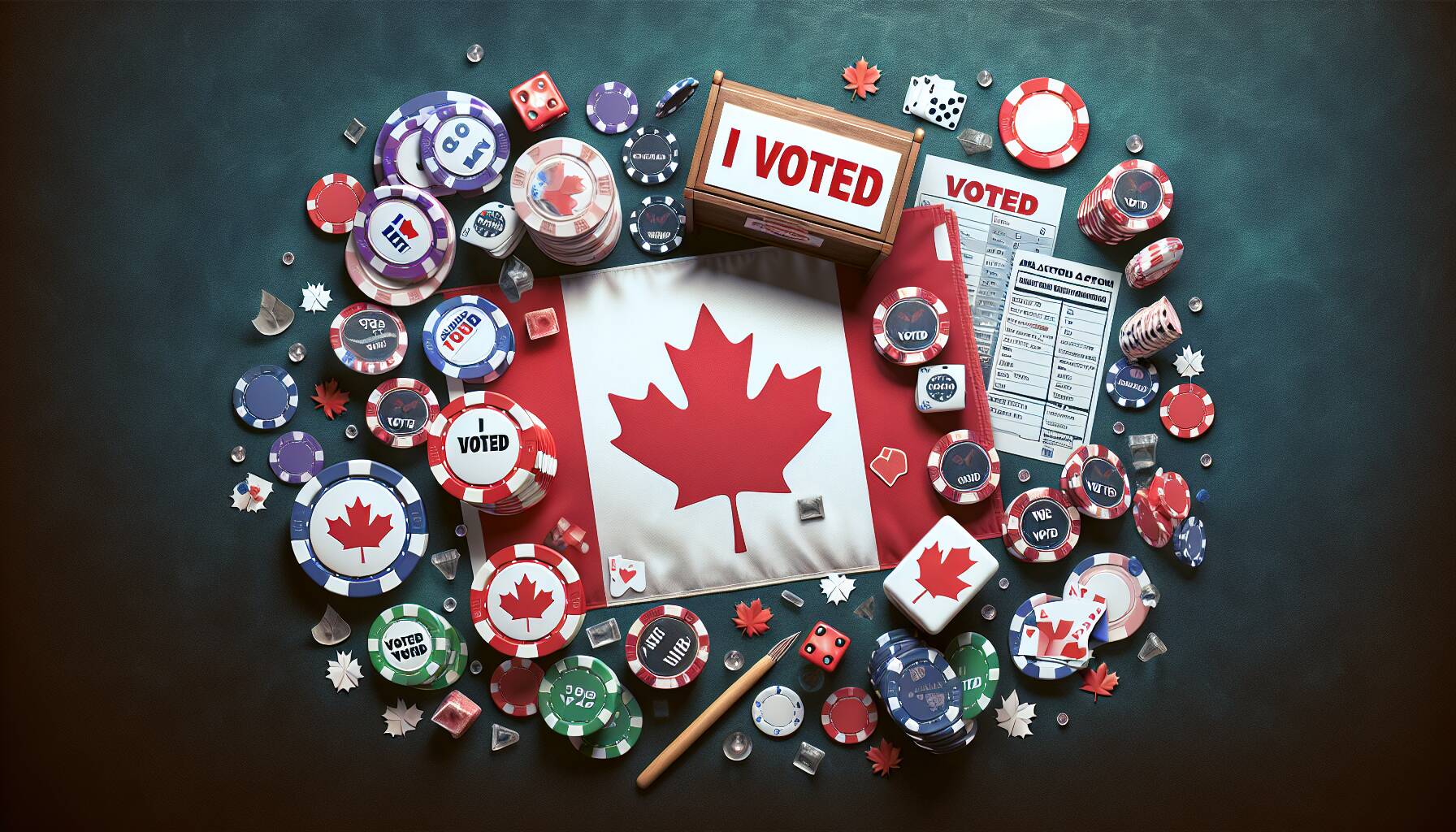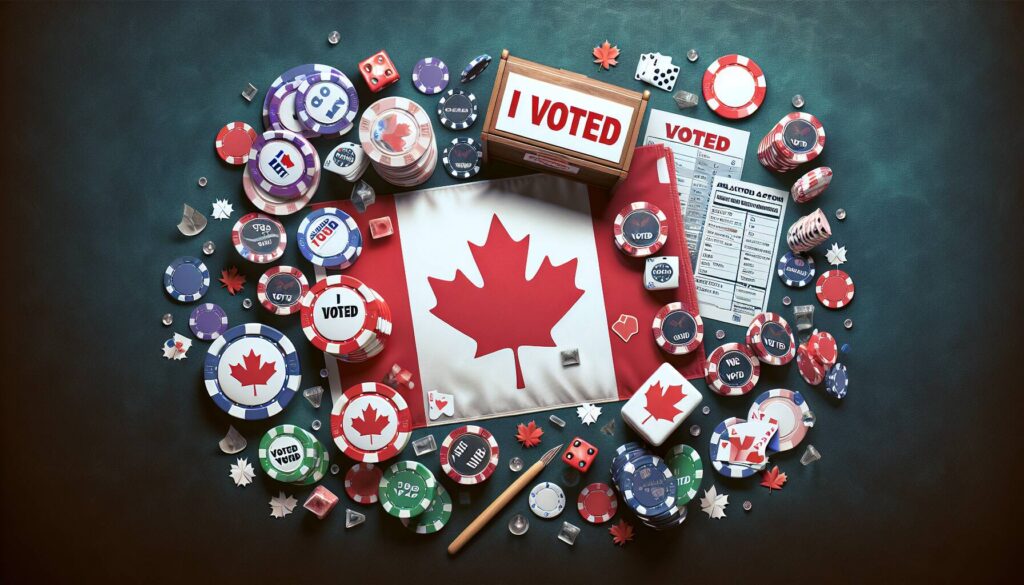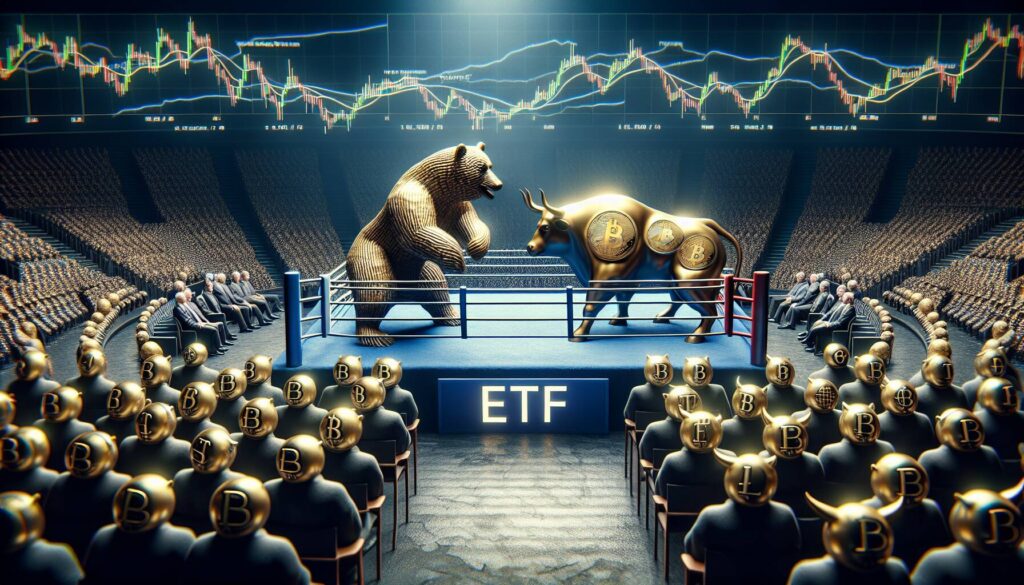As Canada approaches its pivotal 45th election, political bettors are turning their eyes to platforms like Polymarket to gauge the chances of the leading candidates. Current predictions suggest a significant advantage for Liberal Party candidate Mark Carney, who analysts believe has a commanding 78% chance of becoming the next Prime Minister, while Conservative candidate Pierre Poilievre is trailing at 22%. Both betting markets and polling data from sources like CBC suggest a consensus on Carney’s lead, although some skeptics within the betting community question the accuracy of these platforms.
Interestingly, the political dynamics in Canada differ greatly from the heated crypto discussions seen in U.S. elections. The focus for Canadian leaders seems to be centered around pressing issues such as trade disputes and inflation, leaving little room for cryptocurrency to take center stage. Betting platforms like FanDuel, which is available only to Ontario residents, initially indicated a surprising lead for the Conservatives, but recent adjustments have aligned their odds closer to those on prediction markets, favoring the Liberal Party.
“Manipulating prediction markets would be expensive,” notes financial analysts, reflecting on the concerns that have surfaced around the reliability of betting data in the past. Despite criticisms alleging possible manipulation favoring Poilievre, no concrete evidence has emerged to support these claims, even as Polymarket faces operational hurdles in Canada’s largest province due to regulatory issues.
Further entrenching the importance of the Canadian election in the realm of political betting, Polymarket Analytics reveals that the Canadian election contract is one of the most active on their platform. With a large distribution of bets and notable position holders on both sides, the market engagement highlights the growing public interest in this electoral race. Some bettors are placing substantial bets, including one individual with a six-figure stake on Carney, citing confidence stemming from credible polling. Others, however, seem to be betting based on controversial perceptions of the political landscape, suggesting that the motivations behind wagers can vary significantly.
The outcomes on these platforms are leading to substantial financial results for some, with notable players racking up significant gains or losses based on their bets. As the election draws near, the evolving narrative surrounding these prediction markets continues to capture the attention of both bettors and political observers alike.

Canada’s Upcoming Election: Key Insights for Political Bettors
As Canada approaches its 45th election, political bettors are closely monitoring the shifting odds and political landscape. Here are the key points that might impact bettors and politically engaged citizens alike:
- Election Odds:
- The Liberal Party’s Mark Carney is predicted to win with a 78% chance according to Polymarket.
- The Conservative Party’s Pierre Poilievre currently stands at a 22% chance of winning.
- Polling aggregates indicate even higher confidence for Carney at 89% according to CBC.
- Market Variability:
- FanDuel initially gave Poilievre a surprising 70% lead which has since realigned closer to prediction market trends.
- Current licensed betting platforms show Carney with about an 80% chance of winning.
- Market Integrity Concerns:
- Some critics argue that Polymarket may be susceptible to manipulation, leading to skepticism about the reliability of its predictions.
- Unlike the U.S., the Canadian election does not have significant crypto elements influencing the campaigns.
- Bettor Behavior:
- Open interest for the Canadian election contract on Polymarket tops their platform, highlighting substantial market engagement.
- Position holding is distributed, with few bettors controlling the majority of shares – indicating confidence in the market consensus.
- Individual Bettor Strategies:
- A notable bettor has placed a six-figure bet on Carney, emphasizing non-partisan motives based on the perceived quality of polling data.
- Conversely, another bettor lost a significant amount betting against Carney, showcasing the potential risks involved in political betting.
“Poilievre needs a 7-point polling error to win and I think the probability of that is closer to 7% than his current market price of 23c.” – Trader Tenadome
Canada’s Political Betting Landscape: A Comparative Insight
As Canada gears up for its pivotal election, the dynamics within the political betting realm present a fascinating study against the backdrop of betting markets globally. Platforms like Polymarket and Myriad Markets are at the heart of the action, showcasing a tight race for the Prime Ministerial seat, predominantly favoring Mark Carney of the Liberal Party. This scenario mirrors recent American election trends, where prediction markets were equally pivotal. However, while both elections captivate bettors’ attention, distinct nuances separate the Canadian and U.S. landscapes.
Advantages for Political Bettors: The predictive models on Canadian platforms feature a relatively high engagement level, with Polymarket Analytics indicating robust open interest in election contracts. Bettors can leverage these insights to make informed decisions, especially with solid polling data backing Carney’s strong prospects. Moreover, unlike the fragmented betting conditions observed in the U.S., Canadian bettors enjoy a more streamlined environment where platforms like FanDuel are permitting engagement, albeit limited to Ontario residents. This clarity can be advantageous for bettors looking to capitalize on specific market sentiments.
On the flip side, concerns regarding market manipulation raise red flags. Critics assert that platforms like Polymarket might foster an environment where certain opinions, especially those of Pierre Poilievre, are undermined, despite a solid base of backing constituents. Such allegations could affect future trust in these markets and deter serious traders who prioritize reliability over speculation. The ongoing skepticism around manipulation also places the current markets in a precarious position, with potential repercussions for both bettors and the platforms themselves.
This situation opens up opportunities for seasoned political bettors who possess a nuanced understanding of market psychology and polling accuracy. Those with a keen analytical edge can exploit perceived discrepancies in the odds. Conversely, novice traders might find themselves caught in the fray, influenced by misleading narratives or unfounded conspiracy theories. It’s a classic case of “buyer beware,” particularly for those backing the underdog, Poilievre, who seems to be attracting a segment of the betting community that could be easily swayed by prevailing sentiments.
As the election unfolds, bettors and market analysts alike will need to remain vigilant, not only in tracking polling trends but also in understanding the broader implications of the campaign discussions focusing on trade wars and inflation. The absence of a crypto connection is a stark contrast to the U.S. elections, simplifying the dynamics for Canadian political bettors but also limiting potential innovation within the space.
In conclusion, the Canadian political betting scene presents a mix of promise and peril. Engaged bettors ready to navigate its complexities stand poised for substantial gains, while those less informed could face significant pitfalls as the electoral outcomes unfold.















